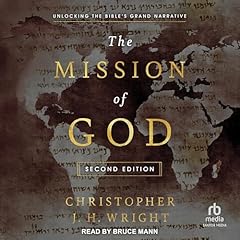
Cities of God
The Real Story of How Christianity Became an Urban Movement and Conquered Rome
No se pudo agregar al carrito
Add to Cart failed.
Error al Agregar a Lista de Deseos.
Error al eliminar de la lista de deseos.
Error al añadir a tu biblioteca
Error al seguir el podcast
Error al dejar de seguir el podcast
 Exclusivo para miembros Prime: ¿Nuevo en Audible? Obtén 2 audiolibros gratis con tu prueba.
Exclusivo para miembros Prime: ¿Nuevo en Audible? Obtén 2 audiolibros gratis con tu prueba.Compra ahora por $17.33
-
Narrado por:
-
Bob Souer
-
De:
-
Rodney Stark
How did the preaching of a peasant carpenter from Galilee spark a movement that would grow to include over two billion followers? Who listened to this "good news," and who ignored it? Where did Christianity spread, and how? Based on quantitative data and the latest scholarship, preeminent scholar and journalist Rodney Stark presents new and startling information about the rise of the early church, overturning many prevailing views of how Christianity grew through time to become the largest religion in the world.
Drawing on both archaeological and historical evidence, Stark is able to provide hard statistical evidence on the religious life of the Roman Empire to discover the facts that set conventional history on its head.
By analyzing concrete data, Stark is able to challenge the conventional wisdom about early Christianity offering the clearest picture ever of how this religion grew from its humble beginnings into the faith of more than one-third of the earth's population.
©2006 Rodney Stark (P)2020 TantorLos oyentes también disfrutaron:




















Las personas que vieron esto también vieron:


















On the contrary, the commonalities showed how God gave us all the capacity to discover him. Stark explores this theme in another book, "Discovering God: The Origins of the Great Religions and the Evolution of Belief." But the difference between pagan religions or cults and Christianity are crucial. As in the case of Gnostic heresies, the non-Christian cults were ahistorical myths, unanchored in time or place, but the Judeo-Christian story was one of an historically and geographically particular people developing its relation with God over centuries, a God who progressively revealed himself "at sundry times and in divers places" as the people were ready to receive and understand (something like Star Trek's "prime directive"!).
A coherent, compelling, and challenging account
Se ha producido un error. Vuelve a intentarlo dentro de unos minutos.
Another excellent work by Stark
Se ha producido un error. Vuelve a intentarlo dentro de unos minutos.
Excellent Book
Se ha producido un error. Vuelve a intentarlo dentro de unos minutos.
As always, the best thing about Rodney Stark is just how much he pulls from the available historical sources (a huge breadth of datapoints for this one) and from them compiles the most factually accurate picture possible. As a data analyst by trade, I appreciate the immense background work Dr. Stark put into this particular work, though it was far from the most engaging of his titles that I've listened to.
Bob Souer did an admirable job narrating this (what I would consider difficult) work. I'd highly recommend the audio format if you're having trouble getting through it in print, though the one disadvantage is that you can't skim lists of information on audio (just listen at 1.5x during the more info-dense parts).
Informative, but be ready for dry lists of info
Se ha producido un error. Vuelve a intentarlo dentro de unos minutos.


